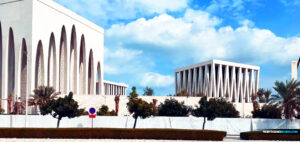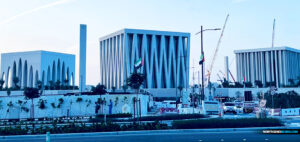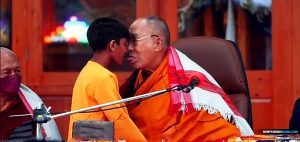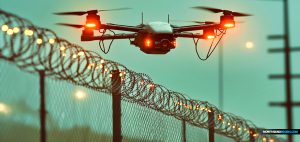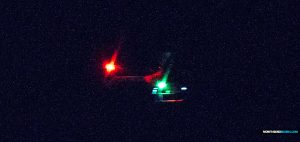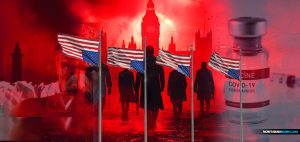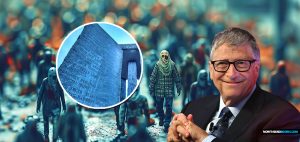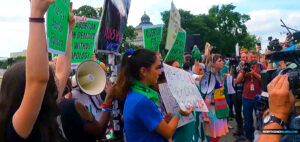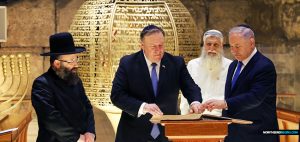Al-Qaeda
Cowardly Obama Still Has No Answer To Al-Qaeda Attack On US Embassy In Libya
Our national embarrassment. Instead of confrontation, the Obama administration has opted for retreat.

Just five weeks before America’s presidential election, US intelligence reports signs that al Qaeda leader Ayman Zuwahiri is preparing a string of terrorist attacks as the sequel to the murders of US ambassador Chris Stevens and three other US officials in Benghazi on Sept. 11, according to evidence collected across Asia, Africa and the Middle East.

Ronald Reagan would have sent the fighter jets over Libya within 72 hours after an attack. Obama cannot muster up even enough courage to call it terrorism.
His twin goals are to influence the poll’s results and to build up his reputation as a master of spectacular terrorist operations. Eager to impress Al Qaeda’s franchise chiefs, Zuwahiri is reported to be celebrating his “Benghazi feat” – his first as Al Qaeda leader – and boasting of the harm to the Obama campaign caused by his administration’s stammering denials that it was an act of terror. The new terrorist chief claims his tactics had an instant, devastating impact on Washington and they were therefore superior to those of his predecessor, Osama bin Laden.
The Al Qaeda leader is now seen – not only by US intelligence experts, but by most experts in the West, the Middle East and Israel – to be impatient to capitalize on this success and so dramatically expose to the Muslim world America’s perceived weakness and his own worth as commander of the jihadist movement.
His planning for a new offensive has taken advantage of the Arab Spring upheavals in the Middle East and North Africa and turned them around to strike at the heart of the Obama administration’s Middle East policy objectives. The Arab revolutions have let Islamist extremist and fundamentalist Salafi groups off the leash in Tunisia, Libya and Egypt, while Lebanon Jordan, Iraq and Syria teeter on the brink of chaos. The extremists now enjoy free rein to organize for political action while also gaining access to vast stocks of modern arms.
In the view of Western counterterrorism experts, Salafi groups have long maintained clandestine relations with al Qaeda, especially Ayman Zuwahiri, who joined al Qaeda in the first place as head of the violent Egyptian Islamic Jihad and stayed in close touch with its secret cells.
Al Qaeda planning also took advantage of the US counterterrorism focus in the last couple of years on the Arabian Peninsula franchise (AQAP) based in Yemen. Less US attention was devoted to the Islamist extremism simmering in North African and other Middle East arenas. It was there that Zuwahiri went to work to fashion new terrorist networks alongside Al Qaeda in the Maghreb (AQIM) from the Salafi groups now rampant across a broad geographical area encompassing Libya, Tunisia, Algeria and Mali and thrusting into the Middle East through Egyptian Sinai.
America is therefore confronted with a broad new al Qaeda front, armed with scanty intelligence. Worst of all, Washington can’t trust the new regimes and local military and intelligence organizations, thrown into power in the post-“Arab revolt” countries, for cooperation in fighting terror.
Instead of confrontation, the Obama administration has opted for retreat.
debkafile’s exclusive sources report that an administration team has hurriedly put together a list of 20 endangered countries where US diplomatic, military and economic may be targeted for al Qaeda attack. The list is prioritized according to the level of risk and US security capability for protection.
The highest-risk locations have been quietly evacuated – either to the US or West European countries – leaving only a skeleton staff behind for emergencies. A senior American source told DEBKAfle Tuesday that Tunisia, Libya, Mali, Nigeria and Egypt have been virtually denuded of a US presence.
Middle East intelligence observers have told debkafile that they don’t recall US diplomatic military and intelligence personnel, businessmen and technical staff with their families being withdrawn from the region on this scale or at comparable speed.
President Obama made American retreat his order of the day after refusing to heed calls for a US military operation against AQIM and its head, Abdelmalek Droukdel. It was Droukdel, according to accumulating intelligence who, acting on behalf of Zuwahiri, orchestrated the Libyan Ansar al-Shariah militia’s murderous attack on the US Benghazi consulate.
The Washington Post reported Tuesday, Oct. 1, that Obama also decided against a punitive attack against al Qaeda’s stronghold in Mali. source – DEBKA

Al-Qaeda
Obama Administration ‘Loses’ Half Billion In Military Weaponry To al-Qaeda In Yemen
Pentagon officials cannot track the whereabouts of $500 million worth of military equipment the U.S. donated to Yemen since 2007 – raising alarms that the hardware may have ended up with al-Qaeda or Iranian-backed rebels.

Pentagon officials cannot track the whereabouts of $500 million worth of military equipment the U.S. donated to Yemen since 2007 – raising alarms that the hardware may have ended up with al-Qaeda or Iranian-backed rebels.
Ever wonder how al-Qaeda and ISIS always have such advanced weaponry and military capabilities? Wonder no more! Obama gives it to them, that’s how they do it. Did you think it was a trick question?
U.S. officials said Tuesday that increasing instability in Yemen has made it impossible to keep tabs on donated equipment that includes small arms, ammunition, patrol boats and night-vision goggles, according to The Washington Post.

U.S. firearms supplied to the Interior Ministry in Yemen, which has received $500 million in aid from the United States since 2007 under an array of Defense Department and State Department programs. (Government Accountability Office)
“We have to assume it’s completely compromised and gone,” a legislative aide on Capitol Hill, speaking on the condition of anonymity, told The Post.
In January, Yemen’s government was overtaken by Iranian-backed Shiite Houthi rebels. The rebels are increasingly taking over military bases.
Since then, the U.S. closed its embassy in Yemen and the Defense Department has stopped delivering equipment to the country, including a shipment of $125 million worth of military products scheduled to be delivered earlier this year.
This is the equipment no one can find, The Post reports:
- 1,250,000 rounds of ammunition
- 200 Glock 9 mm pistols
- 200 M-4 rifles
- 4 Huey II helicopters
- 2 Cessna 208 transport and surveillance aircraft
- 2 coastal patrol boats
- 1 CN-235 transport and surveillance aircraft
- 4 hand-launched Raven drones
- 160 Humvees
Al-Qaeda
Al-Qaeda Affiliate Threatens To Kill American Hostage Luke Somers
Luke Somers, a 33-year-old photojournalist, was abducted in 2013 in Sanaa, the capital of Yemen, according to media reports. In a YouTube video published Wednesday, he says he is certain his “life is in danger.”

An al-Qaeda affiliate has threatened to kill an American hostage in three days if the U.S. government does not respond to the group’s demands, according to terrorist monitoring group Site Intelligence Group.
Luke Somers, a 33-year-old photojournalist, was abducted in 2013 in Sanaa, the capital of Yemen, according to media reports. In a YouTube video published Wednesday, he says he is certain his “life is in danger.”

The video features an al-Qaeda official and a brief message from Somers – dressed in a purple shirt and with a shaved head – at the end. He notes that he was born in England but has American citizenship and lived in America for most of his life.
The al-Qaeda operative who speaks throughout much of the video and threatens that Somers will meet his “inevitable fate” if the group’s demands are not met is Nasser bin Ali al-Ansi of the Arabian Peninsula affiliate, Site Intelligence Group said. The video does not list what those demands are, but al-Ansi says Washington is “aware” of them.
“It’s now been well over a year since I’ve been kidnapped in Sanaa,” Somers said in the footage. “Basically, I’m looking for any help that can get me out of this situation. I’m certain that my life is in danger. So as I sit here now, I ask, if anything can be done, please let it be done. Thank you very much.”
Somers was kidnapped in September 2013 from a street in Sanaa, where he had worked as a photojournalist for the Yemen Times, the Associated Press said.
Read the rest of this story on USA Today…
Al-Qaeda
Islamic Terrorists Foster Jihad With Over 90 Tweets Per Minute On Twitter
Abdulmunim Al-Mushawah revealed that about 129,600 tweets were posted by accounts affiliated to terror groups in October 2014. As a result, at least 500 accounts believed to have been run by terrorists were deactivated.

Islamic terror groups post at least 90 tweets every minute, a new report has found
The data was revealed in a survey conducted by the Saudi-based Sakina, an independent, non-governmental organisation created to engage in dialogue online as a way to combat internet radicalization.

Results showed that terror groups such as the Syrian Islamic Liberation Front, Al-Nusra Front and Islamic State (ISIS) use social media to recruit new members and to spread their propaganda.
Abdulmunim Al-Mushawah, head of the organisation, revealed that about 129,600 tweets were posted by accounts affiliated to terror groups in October 2014. As a result, at least 500 accounts believed to have been run by terrorists were deactivated.
Al-Mushawah urged for a censorship committee to be put in place in order to monitor tweets that could be written to promote insurgents’ propaganda. “The nature of the extremist can be understood by analysing his posts, identifying his social circle and understanding his internal motives and history,” he was quoted by the Saudi Gazzette as saying.
“After understanding and recognising the type of extremist the person is, we can then follow the appropriate method of dialogue knowing that it is a lengthy and complicated process at times.
“The responsibility of protecting the general public from terrorist activities does not only lie with the official directorates. It is also the responsibility of the media, mosques and educational institutes,” he continued.
“Public awareness and guidance are the campaign’s top priorities because it is important to teach people how to face one problem without creating another.”
-

 George Soros9 years ago
George Soros9 years agoProof Of George Soros Nazi Past Finally Comes To Light With Discovery Of Forgotten Interview
-
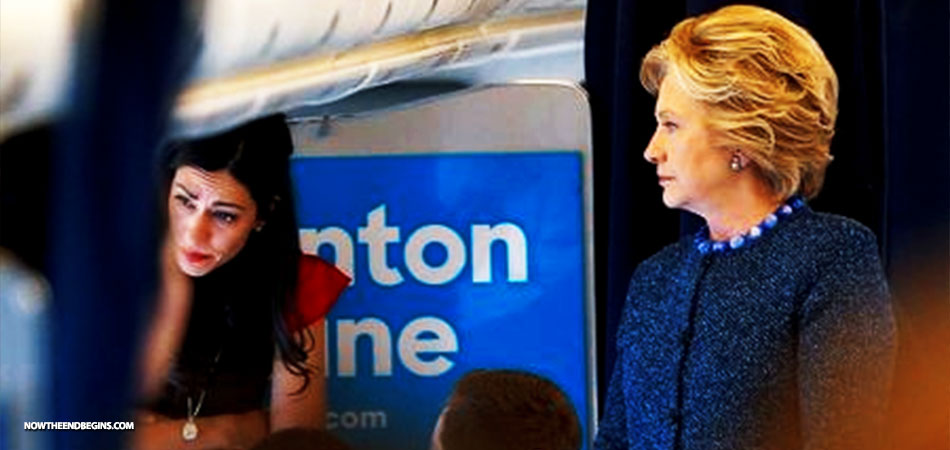
 Election 20169 years ago
Election 20169 years agoDEAD POOL DIVA: Huma Abedin Kept Those Hillary Emails That The FBI Found In A Folder Marked ‘Life Insurance’
-
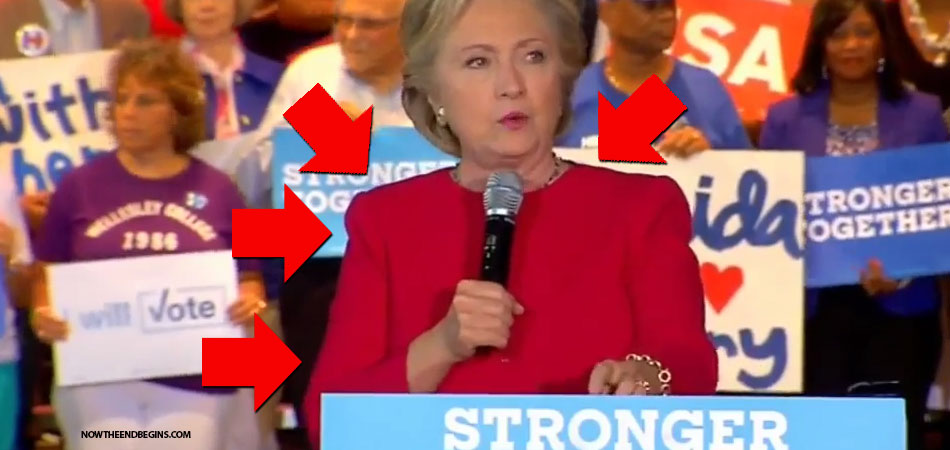
 Election 20169 years ago
Election 20169 years agoCrooked Hillary Campaign Used A Green Screen At Today’s Low Turnout Rally In Coconut Creek FL
-
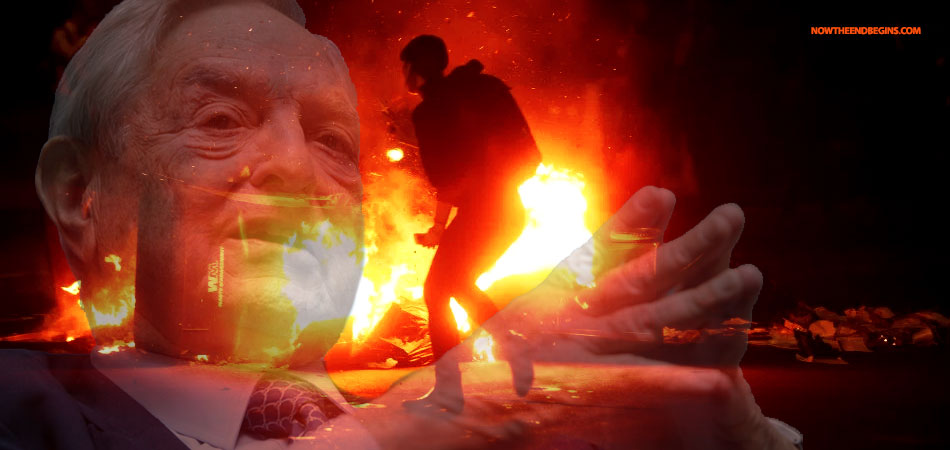
 George Soros9 years ago
George Soros9 years agoSORE LOSER: George Soros Declares War On America As Violent MoveOn.Org Protests Fill The Streets
-

 Donald Trump9 years ago
Donald Trump9 years agoDonald Trump Will Be 70 Years, 7 Months And 7 Days Old On First Full Day In Office As President
-

 Headline News9 years ago
Headline News9 years agoIf Hillary Is Not Guilty, Then Why Are Her Supporters Asking Obama To Pardon Her? Hmm…
-
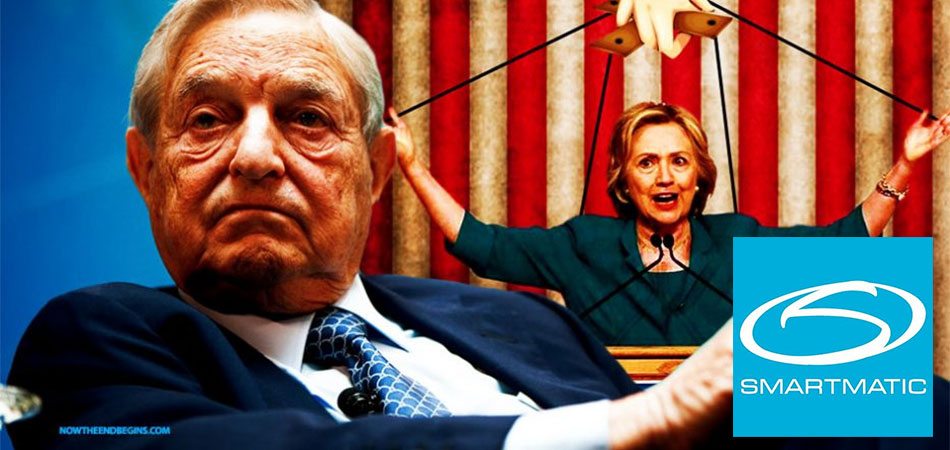
 Election 20169 years ago
Election 20169 years agoWikiLeaks Shows George Soros Controlling Vote With 16 States Using SmartMatic Voting Machines
-

 End Times9 years ago
End Times9 years agoFalse Teacher Beth Moore Endorses The Late Term Partial-Birth Abortion Candidate Crooked Hillary



























